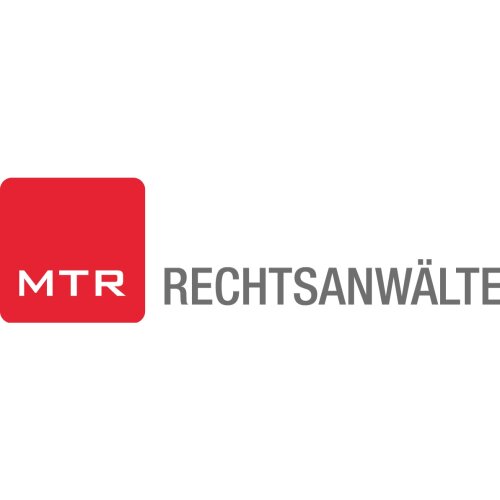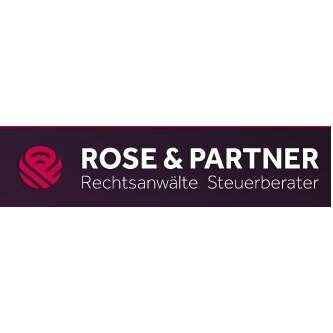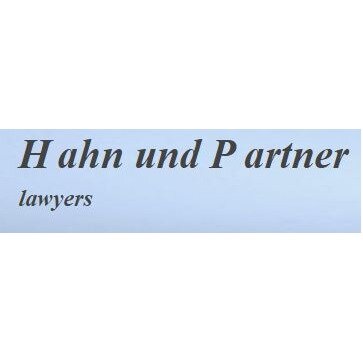Best Energy Regulatory Law Lawyers in Hamburg
Share your needs with us, get contacted by law firms.
Free. Takes 2 min.
List of the best lawyers in Hamburg, Germany
About Energy Regulatory Law in Hamburg, Germany
Energy Regulatory Law in Hamburg, Germany concerns the legal rules and frameworks that govern the generation, distribution, sale, and consumption of all forms of energy, including electricity, gas, and renewables. It encompasses compliance with both federal and state regulations, implementation of European Union directives, and adherence to specific local rules. In Hamburg, the focus is also on promoting sustainable energy, integrating renewable sources, and ensuring reliable energy supply. The legal landscape is complex, involving authorities at multiple administrative levels, and aims to balance the interests of consumers, suppliers, and the environment.
Why You May Need a Lawyer
There are several situations where consulting an energy regulatory lawyer in Hamburg is essential. These include:
- Starting or acquiring an energy company and needing licensing or compliance guidance
- Navigating disputes with energy suppliers, grid operators, or regulators
- Understanding and implementing energy efficiency obligations
- Participating in renewable energy projects or negotiating feed-in tariffs
- Reviewing or drafting contracts related to energy supply or infrastructure
- Responding to regulatory changes impacting your business or property
- Dealing with the energy aspects of real estate or construction projects
- Ensuring compliance with data and consumer protection laws within the energy market
A specialist can help avoid costly mistakes, ensure up-to-date compliance, and represent your interests before regulators or in court if necessary.
Local Laws Overview
Energy regulation in Hamburg is shaped by a combination of European, German federal, and Hamburg-specific laws. The main federal laws include the Energiewirtschaftsgesetz (EnWG - Energy Industry Act), Erneuerbare-Energien-Gesetz (EEG - Renewable Energy Sources Act), and the Messstellenbetriebsgesetz (Meter Operation Act). Hamburg also implements its own initiatives to promote climate protection, energy efficiency, and urban development, such as the Hamburger Klimaschutzgesetz (Hamburg Climate Protection Act).
Key aspects relevant for Hamburg include:
- Requirements for connecting to electricity and gas grids and the conditions for operation
- Tariff regulations and consumer protection in energy contracts
- Incentives and requirements for integrating renewable energies within city projects
- Local authority involvement in energy planning and infrastructure development
- Regulations for energy performance in buildings, supported by Hamburg's ambitious climate targets
Stakeholders must also observe licensing and reporting obligations, and be aware that non-compliance may incur penalties or restrictions on business operations.
Frequently Asked Questions
What is the main authority regulating energy in Hamburg?
Energy regulation is primarily overseen by the Bundesnetzagentur (Federal Network Agency). In Hamburg, energy-related matters are also handled by the Behörde für Umwelt, Klima, Energie und Agrarwirtschaft (Ministry for Environment, Climate, Energy, and Agriculture).
Can individuals and businesses produce their own renewable energy?
Yes, both individuals and businesses can operate solar, wind, or other renewable systems. Legal requirements apply regarding registration, feed-in tariffs, safety standards, and grid access.
Is energy price regulation enforced in Hamburg?
Energy prices themselves are generally deregulated, but certain tariff rules and consumer protections apply, especially for standard supply contracts. Regulators may set rules to ensure fair competition and transparency.
What should I do if I have a dispute with an energy supplier?
Contact the supplier to resolve the issue. If unresolved, Hamburg consumers can consult the Schlichtungsstelle Energie (Energy Arbitration Board) or seek legal assistance for further action.
Are there incentives for installing renewable energy systems in Hamburg?
Yes, there are both federal and local incentives for installing renewable energy technologies, such as grants, favorable loans, or guaranteed feed-in tariffs under the EEG.
What laws apply to energy efficiency in buildings?
Buildings in Hamburg must comply with both the federal Gebäudeenergiegesetz (Building Energy Act) and the local Hamburg Climate Protection Act, which set minimum requirements for energy performance.
Do I need a permit to operate an energy business in Hamburg?
In most cases, yes. Starting an energy supply or distribution business requires licensing and compliance with several regulations. Legal advice is recommended to navigate the process.
How does Hamburg promote sustainable energy?
Hamburg has local policies supporting renewable energy projects, expansion of district heating networks, and programs to boost energy efficiency as part of its climate action plan.
How can I access the grid for a new renewable power installation?
Grid access is regulated by federal law, ensuring non-discriminatory access. However, technical and administrative requirements must be met and coordination with local grid operators is required.
What penalties apply for violating energy regulations?
Penalties can range from fines and compensation claims to business restrictions. The severity depends on the nature and impact of the violation. Proper legal guidance can prevent or mitigate such risks.
Additional Resources
- Bundesnetzagentur (Federal Network Agency) - Responsible for national energy regulation
- Behörde für Umwelt, Klima, Energie und Agrarwirtschaft - Hamburg's local authority for energy matters
- Schlichtungsstelle Energie - The national Energy Arbitration Board for consumer disputes
- Verbraucherzentrale Hamburg - Hamburg Consumer Advice Center, providing guidance on energy contracts and issues
- Chamber of Commerce Hamburg - Offers guidance for businesses in the energy sector
Next Steps
If you believe you need legal advice in Energy Regulatory Law in Hamburg, start by collecting all relevant documentation related to your situation. Clearly outline your questions or issues. Then, seek out a qualified lawyer with expertise in energy law, ideally with experience in Hamburg-specific matters. You can find legal specialists through local bar associations, the Chamber of Commerce, or recommendations from industry organizations. Many law firms offer an initial consultation, which can help clarify your case and the best course of action. Ensure any legal professional you hire is experienced with the latest regulatory changes and can provide practical, compliant solutions tailored to your needs.
Lawzana helps you find the best lawyers and law firms in Hamburg through a curated and pre-screened list of qualified legal professionals. Our platform offers rankings and detailed profiles of attorneys and law firms, allowing you to compare based on practice areas, including Energy Regulatory Law, experience, and client feedback.
Each profile includes a description of the firm's areas of practice, client reviews, team members and partners, year of establishment, spoken languages, office locations, contact information, social media presence, and any published articles or resources. Most firms on our platform speak English and are experienced in both local and international legal matters.
Get a quote from top-rated law firms in Hamburg, Germany — quickly, securely, and without unnecessary hassle.
Disclaimer:
The information provided on this page is for general informational purposes only and does not constitute legal advice. While we strive to ensure the accuracy and relevance of the content, legal information may change over time, and interpretations of the law can vary. You should always consult with a qualified legal professional for advice specific to your situation.
We disclaim all liability for actions taken or not taken based on the content of this page. If you believe any information is incorrect or outdated, please contact us, and we will review and update it where appropriate.












